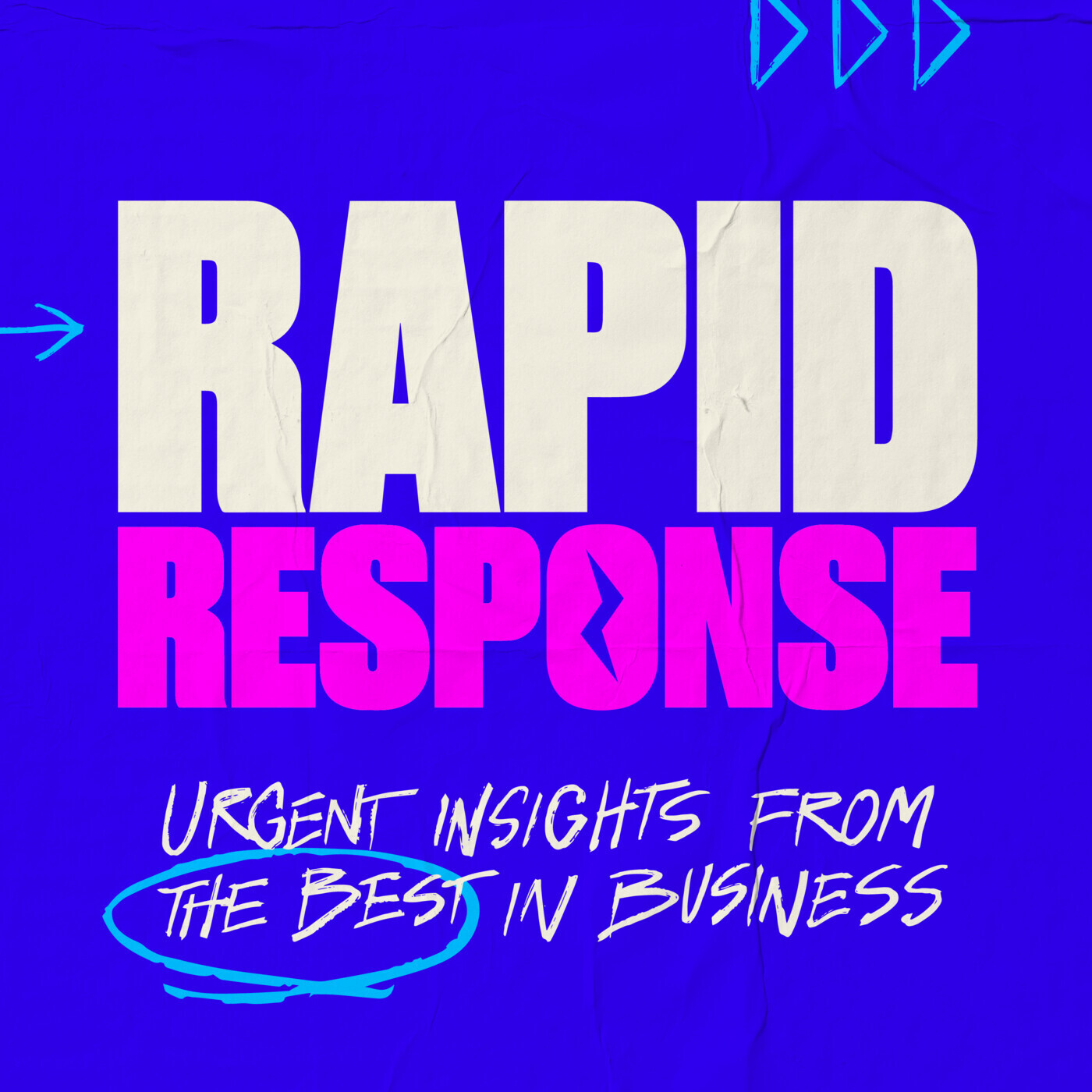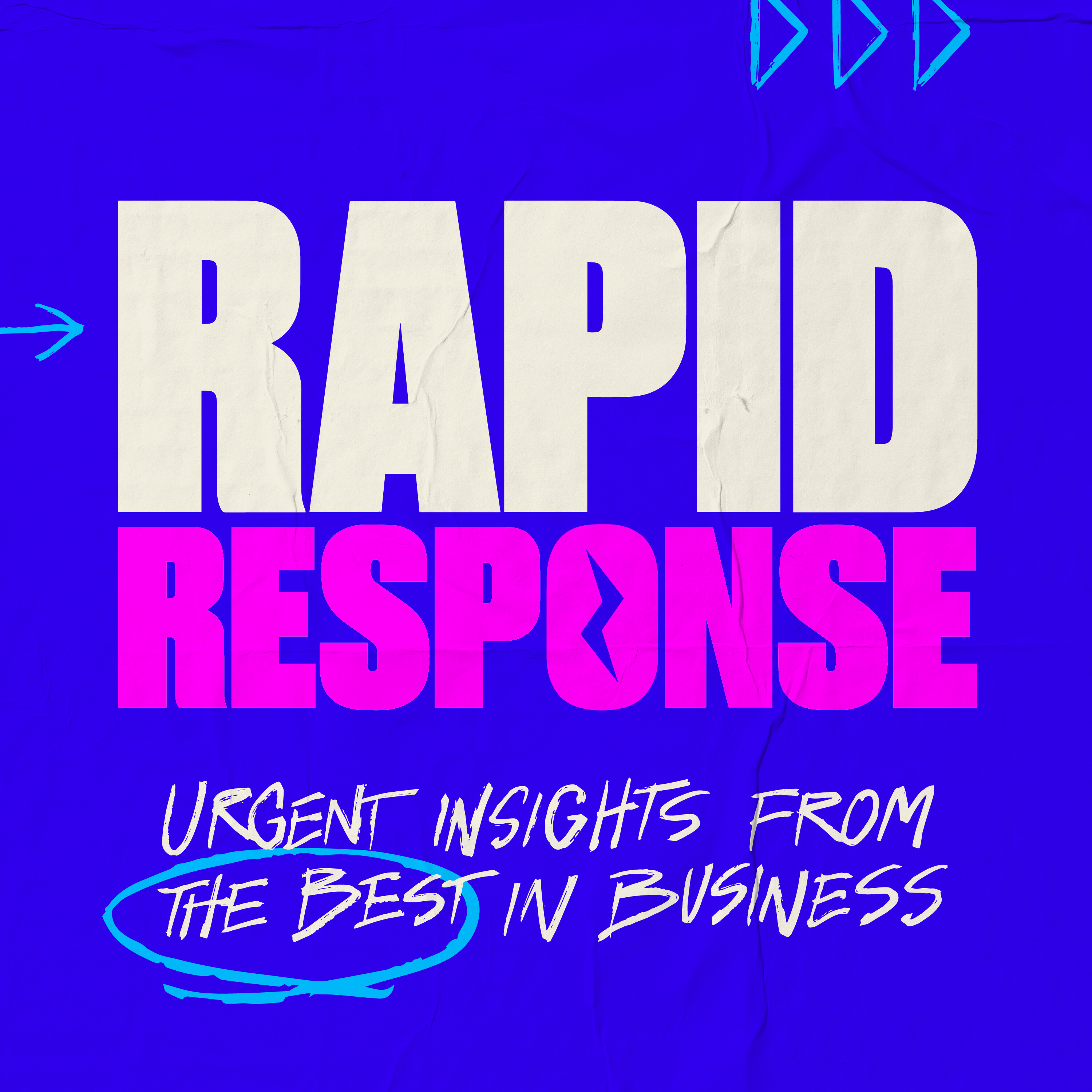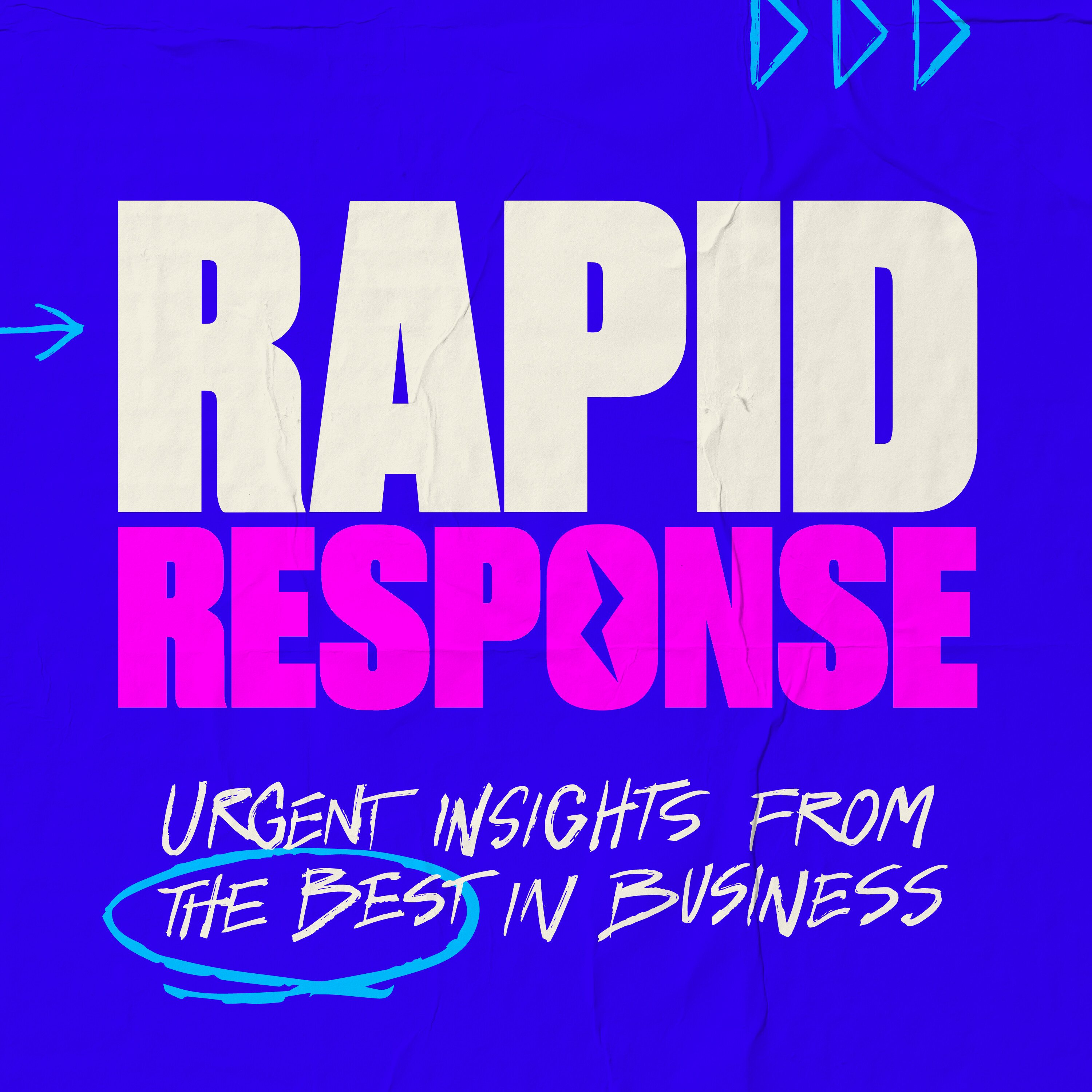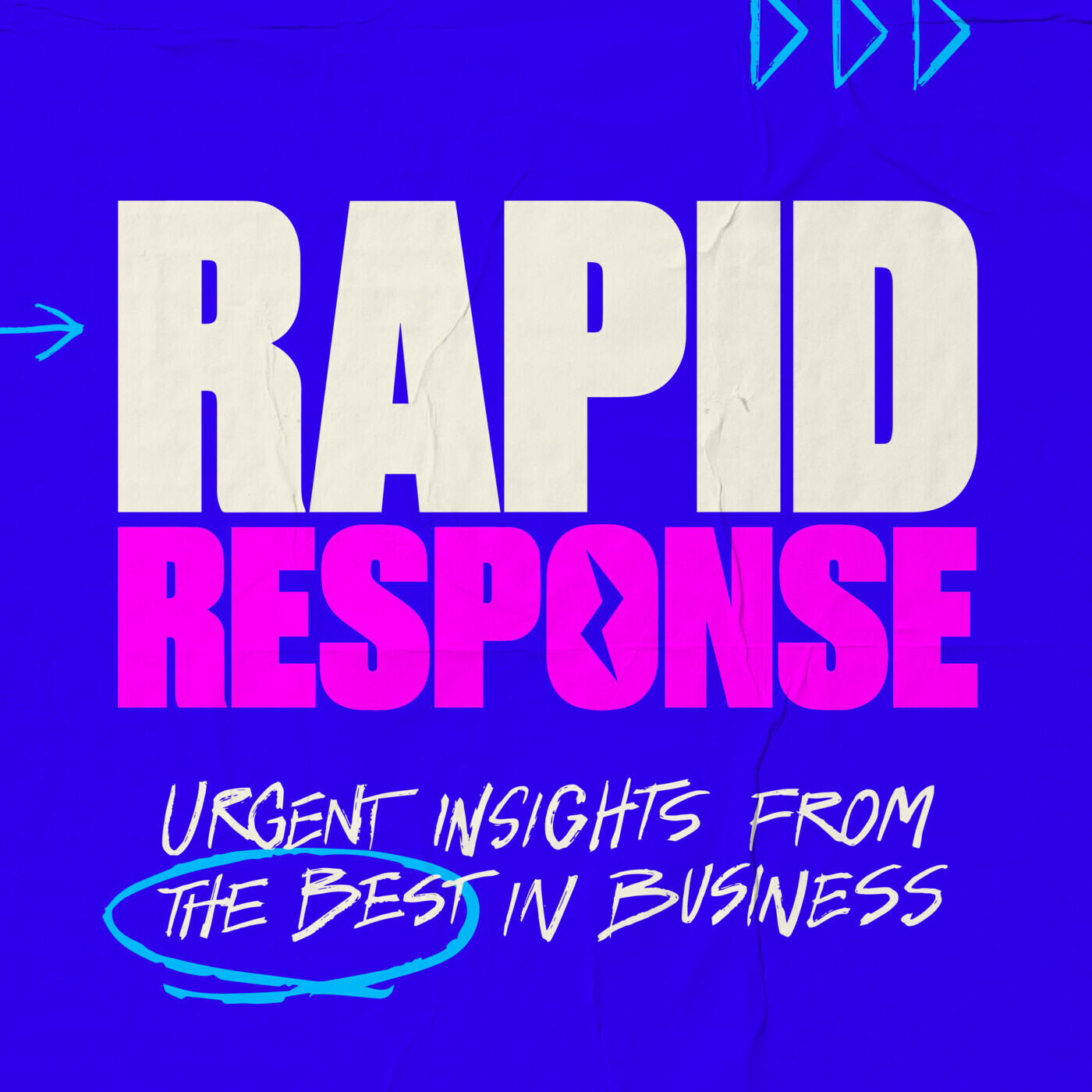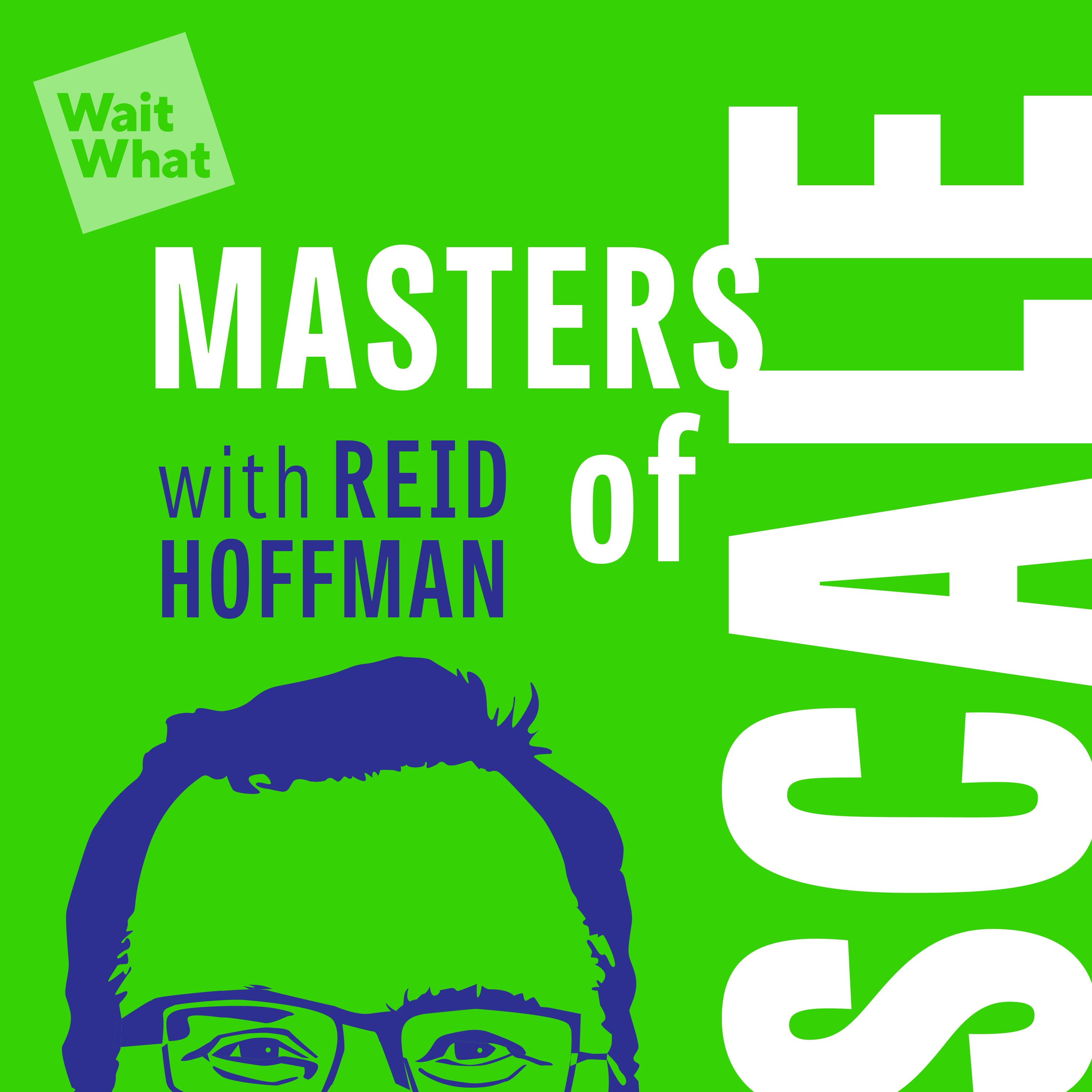
April 11, 2024 • 26min
Rapid Response: How optimism fuels the economy, w/U.S. Chamber of Commerce CEO Suzanne Clark
Masters of Scale

Key Takeaways
- Optimism in business: Despite economic challenges, many business leaders remain optimistic about their own companies, even if they are concerned about the broader economy.
- Geopolitical uncertainty: Issues like wars in Europe and the Middle East, and tensions with China are creating uncertainty for businesses globally.
- Government regulation: There is concern about "regulatory overreach" from the current administration, with businesses seeing government policy as an increasing risk.
- Prioritization needed: Clark argues the U.S. needs to better prioritize which issues to focus on, rather than trying to tackle everything at once.
- Challenges for big tech: Clark suggests the U.S. should be cautious about overly regulating or breaking up big tech companies that give the country a competitive advantage globally.
- Workplace expectations: Clark believes employees shouldn't bring their "whole selves" to work, as it can create tension in a politically divided country.
- Purpose and pressure: There is increasing pressure, especially on young people, to have a grand purpose beyond just taking care of family and community.
Introduction
Suzanne Clark, CEO of the U.S. Chamber of Commerce, joins Bob Safian to discuss the current state of American business and the economy. As an advocate for businesses in front of global leaders, Clark provides insight into the challenges and opportunities facing companies in the U.S. and abroad. The conversation covers a wide range of topics, from economic optimism to geopolitical tensions, government regulation, and the changing expectations of the workplace.
Topics Discussed
Economic Optimism and Consumer Sentiment (02:12)
Clark begins by discussing the inherent optimism in business, noting that starting any venture requires a belief that it will succeed. However, she acknowledges the disconnect between business optimism and consumer sentiment:
- 65% of small businesses feel good about their own health, but only 32% feel good about the overall economy.
- There is recognition that many Americans are struggling with issues like housing costs and inflation.
- Clark notes: "Slowing the rate of inflation is not the same thing as prices going down overnight."
Geopolitical Uncertainty and Global Business (04:52)
The conversation shifts to the global landscape and its impact on U.S. businesses:
- Concerns about conflicts in Europe, the Middle East, and disruptions to shipping routes.
- The importance of maintaining communication with China, despite tensions.
- Clark's recent trip to China, including meetings with Chinese leaders.
Clark emphasizes the importance of dialogue: "It's really important that our two countries are in the habit of communication."
Government Regulation and Business Concerns (11:09)
A significant portion of the discussion focuses on the relationship between government and business:
- Regulatory overreach: Clark expresses concern about what she sees as unprecedented regulatory action from the current administration.
- Lack of strategic planning: She criticizes the government for not prioritizing effectively, using the example of pushing for electric vehicles without adequate infrastructure.
- Impact on small businesses: Clark argues that excessive regulation and slowing of M&A activity can disproportionately harm smaller companies.
- Policy risk: A study of S&P 500 companies showed mentions of public policy risk in their 10-K filings increased by 30% over a decade.
Clark states: "That means that American companies are filing that the biggest escalating risk is coming from their own government. That's really startling."
Political Polarization and Business (13:47)
The discussion touches on how political polarization affects the business environment:
- Frequent changes in administration lead to policy swings, making long-term planning difficult for businesses.
- Allies are concerned about political uncertainty in the U.S., while adversaries may see it as advantageous.
- CEOs are frustrated by constant criticism of business from politicians, despite the positive contributions of companies.
Social and Cultural Issues in the Workplace (18:39)
Clark addresses the challenges businesses face in dealing with social and cultural issues:
- There's a trend of people wanting to bring their "whole selves" to work, as other community institutions decline.
- Clark argues against this trend: "My personal view is that we have to tell people, you can't [bring your whole self to work]."
- She suggests finding ways to respect employees' desire for activism while maintaining a professional environment.
Strategic Prioritization (19:57)
Clark expresses frustration with the lack of prioritization in addressing national issues:
- She argues for focusing on a few key issues rather than trying to solve everything simultaneously.
- This approach should apply to both government policy and business strategy.
Antitrust and Big Tech (21:10)
The conversation turns to concerns about big tech and antitrust regulation:
- Clark argues that the market naturally takes care of companies that get too big.
- She expresses concern about overzealous regulation of successful tech companies, especially given global competition.
- "If you look at our big tech companies, it's the one thing our adversaries cannot beat us at, they have not been able to figure it out."
Changes in Business Challenges (23:10)
Clark reflects on how business challenges have evolved:
- The pace and scale of change have increased dramatically.
- Recent years have brought unprecedented challenges like the global pandemic, supply chain disruptions, and high inflation.
- Business leaders are now expected to address a wider range of societal issues.
Purpose and Expectations for Young People (24:10)
The discussion concludes with reflections on changing expectations for individuals and businesses:
- Clark argues that young people today face excessive pressure to have a grand purpose beyond family and community.
- She suggests that running a successful business can be a worthy calling in itself, allowing for philanthropy and problem-solving.
- "Business can be a great calling that allows you to be philanthropic, that allows you to create opportunities for other people, that allows you to solve problems."
Conclusion
Suzanne Clark's conversation with Bob Safian provides a comprehensive overview of the current business landscape in the United States. While acknowledging the challenges faced by consumers and the broader economy, Clark emphasizes the inherent optimism of business leaders and their ability to adapt to changing circumstances.
The discussion highlights several key tensions in the current environment: the disconnect between business optimism and consumer sentiment, the challenges of operating in an increasingly uncertain global landscape, and the complex relationship between government regulation and business innovation.
Clark's perspective on issues like bringing one's "whole self" to work and the pressure on young people to have a grand purpose beyond family and community offers a thought-provoking counterpoint to some current trends in business culture. Her emphasis on the need for better prioritization, both in government policy and business strategy, suggests a potential path forward for addressing the complex challenges facing the country.
Ultimately, Clark's message is one of cautious optimism. While acknowledging the very real challenges facing businesses and the broader economy, she argues for the continued importance of the free enterprise system in driving innovation, solving problems, and creating opportunities. As she puts it: "What's at stake is us losing respect for and interest in and passion for the very job creators and problem solvers that can help us get through this complicated time."

